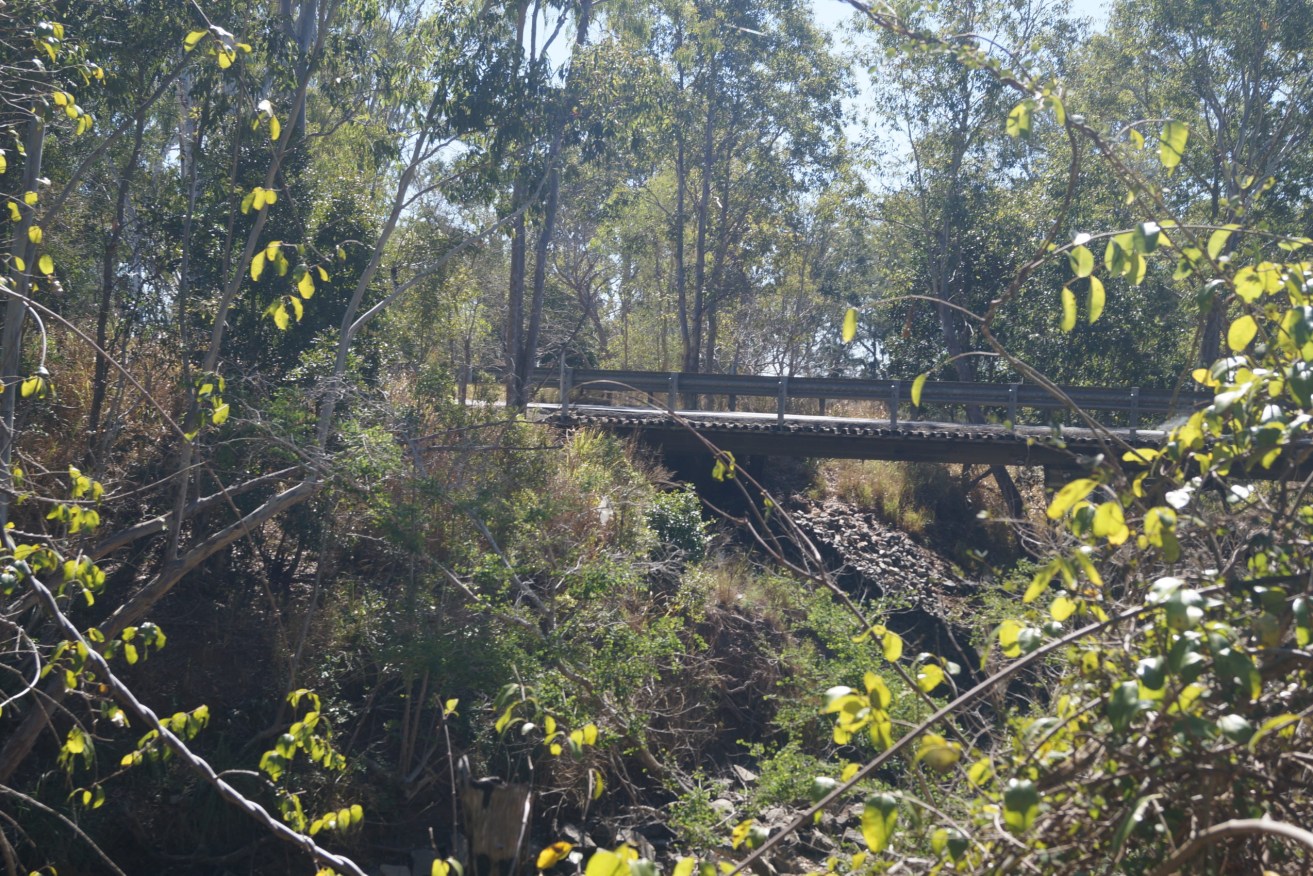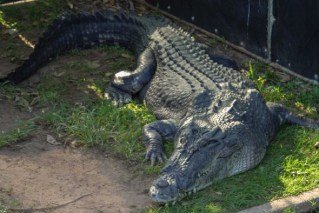Named and shamed: Wiping away place names that make you cringe
Before Black Lives Matter and the call to rip down monuments to a racist past, Queenslanders have been on a quiet mission to expunge the legacies of our own sometimes sordid and violent history.


A new beginning for Dundula Creek, formerly known as Black Gin Creek near Rockhampton.
The latest win to wipe racist and offensive placenames off the Queensland map came earlier this month with the renaming of Black Gin Creek outside Rockhampton to Dundula, meaning gum tree in the language of the local Darumbal people.
The good news is that a painful reminder of a hurtful time has been erased, abolishing any tenuous claim such names may have to legitimacy and removing the comfort they provide to racists and revisionists.
The bad news is that 26 “Black Gin Creeks” remain in Queensland, according to Darumbal Elder Aunty Sally Vea Vea.
“Places called Black Gin Creek were areas commonly used by white men as places to rape and murder Aboriginal women,” Vea Vea told InQueensland.
“They are places that hold memories of terrible pain and suffering not just for Aboriginal women but also Aboriginal men, because these things happened to their family and they are not forgotten.”
In the context of this month’s name change, the development is even more significant given the high visibility of the location.
The renamed Dundula Creek connects four suburbs in Rockhampton, starting at the border of South Yaamba and running straight through Alton Downs down to Dalma and Nine Mile.
It is the third place-name win for the Durambal people who hold Native Title over the area, which includes the 22-kilometre watercourse.
In 2018, the Durambal people were successful in having two mountains in central Queensland renamed to Baga (formerly Mount Jim Crow in reference to US racial segregation) and Gai-I (formerly Mount Wheeler, named after Trooper Frederick Wheeler who was later connected by historians to several massacres in the district).
“He was a very bad man and should have nothing named in his honour,” Vea Vea said.
The next aim is to have Black Gin Creek Road and Mount Wheeler Road also renamed.
Given her successful track record, Vea Vea is now regularly sought by other groups across Queensland keen to eliminate the racial slurs from their community landmarks.
In the case of the latest change, 99 per cent of the Rockhampton community who delivered feedback via the Department of Natural Resources process were in favour of the Durambal application.
The righting of historical wrongs continues the momentum the department started several years ago to have multiple offensive names changed or removed with community support.
It was only three years ago that 10 locations and features in north Queensland had these abhorrent names removed:
- Niggers Bounce, a locality about 100km west of Charters Towers
- Mount Nigger, about 300km west of Cardwell
- Nigger Head, near the tip of Cape York
- Seven watercourses named Nigger Creek in north and far north Queensland.
A department spokesperson said Traditional Owners near Rosedale were currently working to rename Murrays Creek, apparently named after another dubious character who had links with the Native Police in the Wide Bay/Gladstone area.
“The department is currently investigating the potential association,” the spokesperson said.
The spokesperson said Traditional Owners in Noosa Shire were also consulting on Blackfellow Creek and would address a name change after their current native title claim was resolved.
“At this time, the department has not received a formal name change request for either place name,” the spokesperson said.
Vea Vea said while the process to change Black Gin Creek took two years of significant public consultation, the effort has been worth the long hours.
“After 156 years, this is a very significant moment for us and we thank everyone who supported us and stood with us in working to have the creek renamed—from state agencies to the average person walking on the street,” she said.
“I feel that this marks a new season and new stage for our community and is great for reconciliation.
“The people who drive over that creek every day will see Dundula Creek, they will see the change, and it will bring a good feeling to the entire community.
“There is healing in this action for the entire community and for all Darumbal women.”












